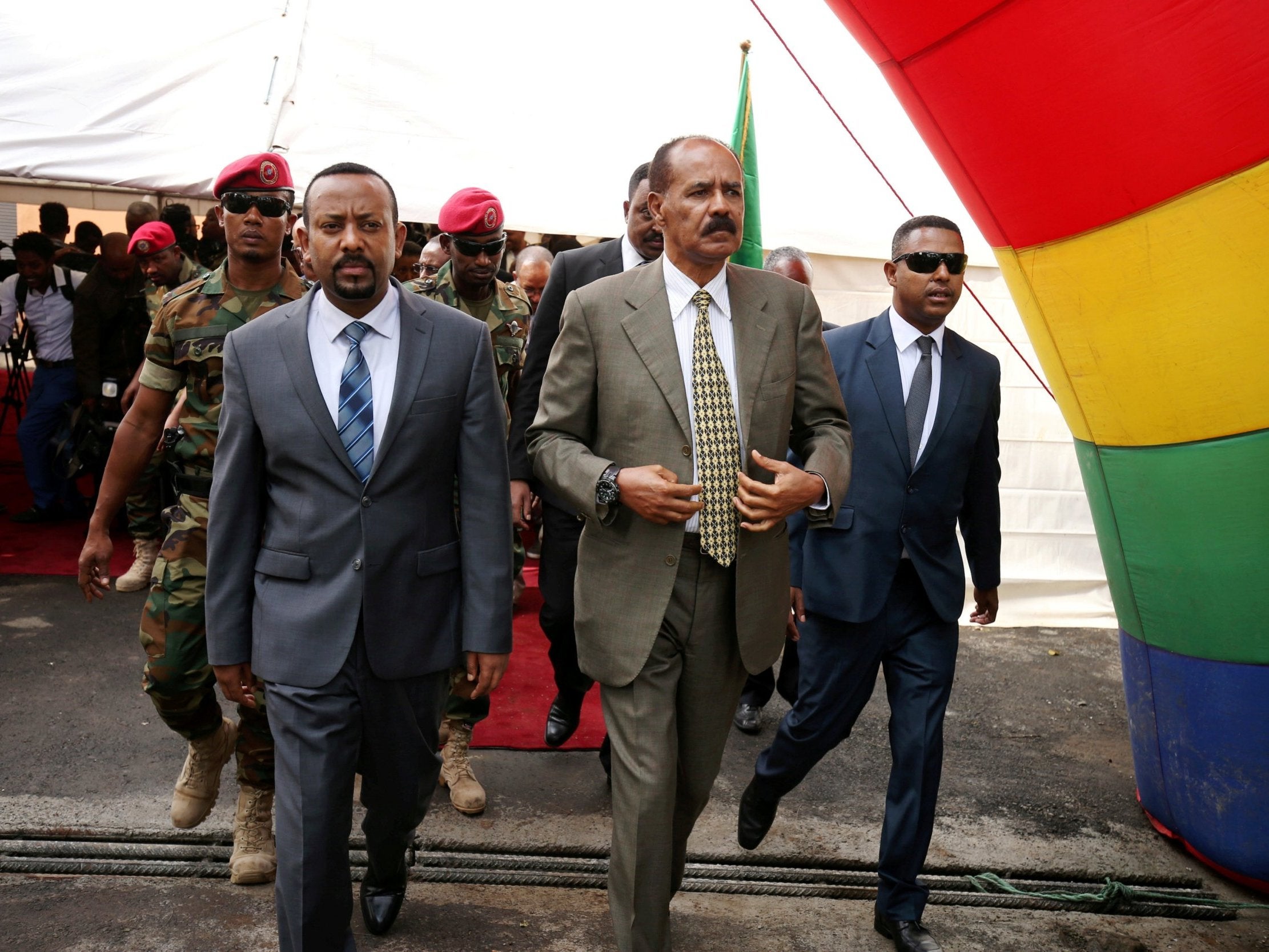Ethiopia and Eritrea leaders officially open border to end decades of war and tension
Former bitter rivals make stunning reconciliation to improve transport links between two countries

Your support helps us to tell the story
From reproductive rights to climate change to Big Tech, The Independent is on the ground when the story is developing. Whether it's investigating the financials of Elon Musk's pro-Trump PAC or producing our latest documentary, 'The A Word', which shines a light on the American women fighting for reproductive rights, we know how important it is to parse out the facts from the messaging.
At such a critical moment in US history, we need reporters on the ground. Your donation allows us to keep sending journalists to speak to both sides of the story.
The Independent is trusted by Americans across the entire political spectrum. And unlike many other quality news outlets, we choose not to lock Americans out of our reporting and analysis with paywalls. We believe quality journalism should be available to everyone, paid for by those who can afford it.
Your support makes all the difference.Celebrating their dramatic diplomatic thaw, the leaders of Ethiopia and Eritrea on Tuesday officially opened the border where a bloody war and ensuing tensions had divided them for decades.
Ethiopia's reformist new prime minister, Abiy Ahmed, and long-time Eritrean president, Isaias Afwerki, visited the Bure Front along with members of their militaries to mark the Ethiopian new year, Mr Abiy's chief of staff Fitsum Arega said in a Twitter post.
The two then opened the border post "for road transport connectivity" and would shortly do the same at the Serha-Zalambesa crossing, Eritrean Information Minister Yemane Meskel said on Twitter.
Photos posted by both officials showed Mr Abiy in camouflage and sunglasses walking alongside Mr Isaias in olive drab, while civilians lined a road with the countries' flags in hand.
The former bitter rivals have made a stunning reconciliation since Mr Abiy, weeks after taking office in April, announced that Ethiopia would fully embrace a peace deal that ended a 1998-2000 border war that killed tens of thousands.
At the time, he announced that the countries would celebrate the Ethiopian new year together: "We want our brothers and sisters to come here and visit us as soon as possible."
Embassies have reopened, telephone lines have been restored and commercial flights between the capitals have resumed as some long-separated families have held tearful reunions. Landlocked Ethiopia, one of Africa's fastest-growing economies, and Eritrea, one of the world's most closed-off nations, also plan development cooperation around Eritrea's Red Sea ports in particular.
Reports on social media on Monday indicated that mine-clearing activities were underway in one border area, signalling that an opening was planned.
Mr Abiy on Monday told a new year's eve concert crowd of thousands in Ethiopia's capital, Addis Ababa, that "as of today, Ethiopian and Eritrean people will prosper together and march in unison...The last five months have brought hope and reconciliation".
The Ethiopian new year has roots in the Ethiopian Orthodox Church and is related to the Julian calendar. Eritrea has used the Gregorian calendar since it gained independence from Ethiopia in 1993.
The reconciliation between Ethiopia and Eritrea has been warmly welcomed by the international community and has led to a series of further thaws in the fragile Horn of Africa region, with Eritrea resuming diplomatic ties with both turbulent Somalia and the small but strategic port and military nation of Djibouti.
Associated Press
Join our commenting forum
Join thought-provoking conversations, follow other Independent readers and see their replies
Comments